The Beginner’s Guide: John Cassavetes, Director, Writer, Actor
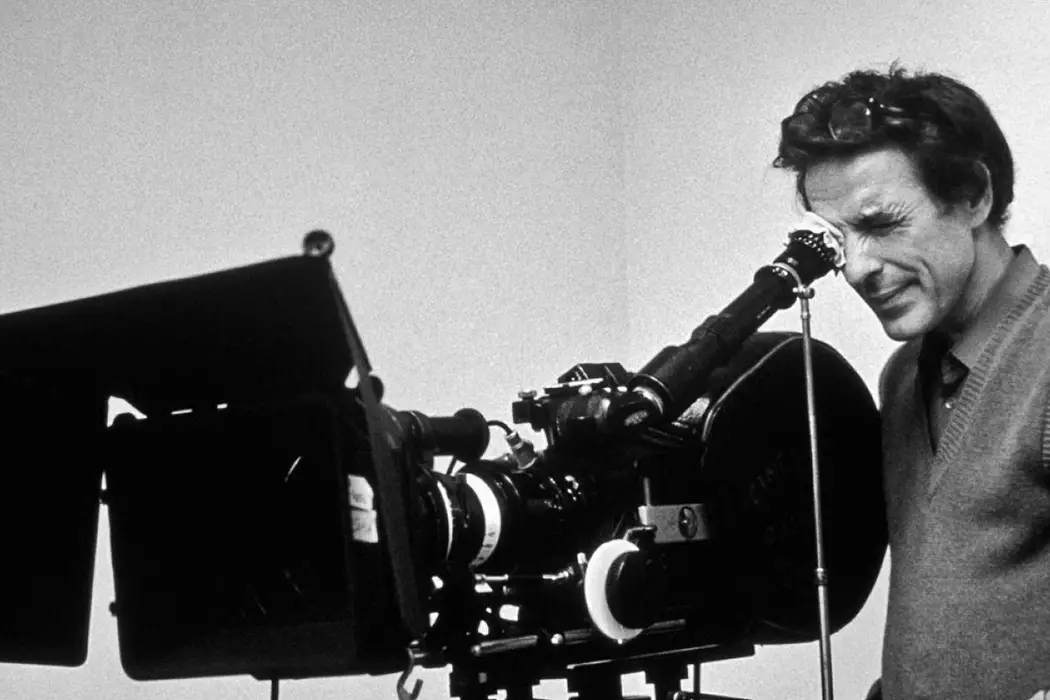
It took me a while to discover the wonderful world…
‘You start with nothing. That’s what’s always fascinated me. There’s nothing. You start with only a few people around you. You can be drinking, talking, laughing, happy or unhappy and you think, ‘Ok let’s do that’. And then something happens. You have another life for a year or two. The process is so hard. People don’t really like to work this way because their lives are important. Above all, you need to break away from your experience of the industry, from the idea of commercial filmmaking. What you discover is that any idea you have – if it’s a relatively original idea – suddenly becomes courageous.’ Cassavetes on Cassavetes, page 133
Born in New York City to a first generation Greek immigrant father, and second generation Greek immigrant mother, John Cassavetes spent his early childhood in Greece. When he returned to NYC, he couldn’t speak any English. He had a peripatetic education, never staying in any one place for very long, never doing well at any particular school, until he ended up at the American Academy For Dramatic Arts, with the ambition of becoming an actor.
This was where he met his future wife, Gena Rowlands. She was his most frequent collaborator, but one of many who worked with him again and again. Other members of the Cassavetes team were Peter Falk, Ben Gazzara and Seymour Cassel, who each appeared in at least three of his movies.
Cassavetes’ first dream was to be an actor, and he continued in the profession his whole life, both in his own movies and other peoples’. His most famous turn was as the malevolent Guy in Rosemary’s Baby, but he also had memorable roles in The Dirty Dozen (for which he was Oscar-nominated), The Fury, Mikey and Nicky, and The Killers (where he punched future president Ronald Reagan in the face!).
Cassavetes’ directing career stemmed from his love of acting. After leaving the American Academy For Dramatic Arts, in 1956, he started his own acting classes. It was out of improvisational exercises with his students that his directorial debut was born.
Shadows (1959)
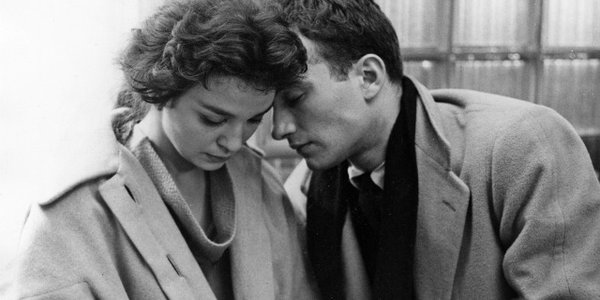
Cassavetes’ first feature is regarded by many as being the first American independent film. It follows three African-American siblings (although in an important plot point, only one of them actually looks African-American), as they navigate both romantic relationships and their relationships with each other on the swinging streets of 1950’s New York City.
It was the European response to the film that got it noticed by Stateside audiences. Shadows won an award at the Venice Film Festival, and then a distribution deal with British Lion. The rapturous European reception makes sense; Cassavetes’ films share a looseness and spontaneity with the films of the French New Wave and Italian Neo-realism, but are American through and through. Shadows in particular is a real 50’s NYC time capsule; memorable scenes are set at the Museum of Modern Art, Grand Central Station, and Times Square.
Though not entirely new, location shooting was still not common during the time of Shadows’ release. Similarly, the use of improvisational dialogue, boasted of during the film’s closing credits, was far from usual. Shadows was a different type of movie for American audiences; the first screening of the original version did so badly that it was severely re-cut. It’s this second version that we know today – the first version, so desperately sought by so many film historians, was found in the box of a Manhattan junk dealer in 2002.
Too Late Blues (1961)
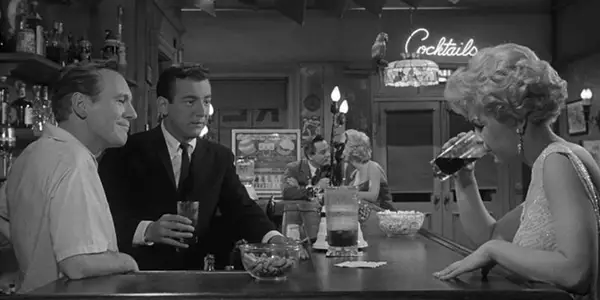
Early in his career, with this film and A Child is Waiting (1963), Cassavetes dipped a toe into the world of studio filmmaking. This was largely as a result of the debt that Shadows had left him in; studio-directing and television acting were a convenient way of getting him back in the red.
Though Too Late Blues was the result of compromise between the director and the studio (most notably in casting – he wanted Montgomery Clift and Gena Rowlands for the roles that eventually went to Bobby Darin and Stella Stevens), the film still contains a lot of Cassavetes’ common themes and artistic traits.
Jazz plays even more of a role than it does in Shadows. It’s central to the plot. There’s a comparison to be made with film du jour, La La Land, in terms of the discussion around what counts as ‘real jazz’, and what equates to ‘selling out’. This can also be related to Cassavetes’ discomfort at working within the mainstream.
Ultimately, Too Late Blues feels more like a Cassavetes film than it does a studio picture. The emotional lives of the characters are front and centre, with the plot playing second fiddle. The open-ended denouement seems much more a result of the man than the Hollywood machine. Cassavetes was always too much of an individual to stay within the studio system, but Too Late Blues is still an interesting look at what could have been.
Husbands (1970)
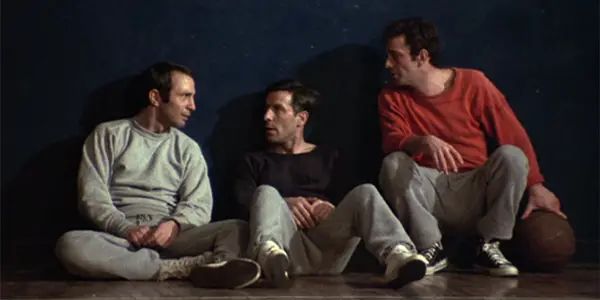
In Husbands, Cassavetes, Peter Falk and Ben Gazzara plays three middle-aged friends who fall into a tailspin when the fourth member of their group dies unexpectedly. Over much carousing, awkward encounters with women, and an impromptu trip to London, the three confront their own feelings about mortality.
Husbands, like Cassavetes’ previous film Faces, is the director coming to term with middle age; ‘I’m interested in middle-aged people because I’m in that generation and share their concerns.’ (Cassavetes on Cassavetes, page 134). It was also perhaps a way of creatively dealing with the unexpected death of his older brother, Nick, who’d died aged only thirty.
His films are so personal that often his actors, and the people closest to him, didn’t understand what he was aiming for. In an interview with Gena Rowlands, Falk talks about his frustration with his friend during the filming of Husbands; ‘I didn’t know what the hell we were doing!’
This, in its original version at least, is the longest of Cassavetes’ films, and thanks to its length and apparent aimlessness, it arguably takes the most patience. But it’s also one of the most successful films at portraying a feeling; as the characters drift through the drunken weekend, through bad decision after bad decision, they reveal their deep-set vulnerabilities, and it all adds up to create a stealthily moving experience. There’s arguably no other film that conveys the feelings of a male midlife crisis with such emotional eloquence.
A Woman Under The Influence (1974)
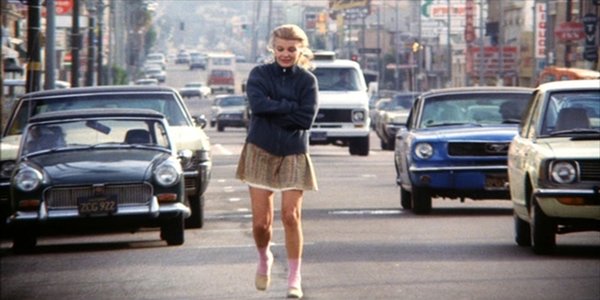
Gena Rowlands appeared in many of her husband’s films, but A Woman Under The Influence is generally considered to be her finest performance, earning her first Academy Award nomination. In the film, she plays Mabel Longhetti, an LA housewife whose husband Nick (Peter Falk) becomes convinced is having a mental breakdown.
Rowlands is often cast as mentally damaged characters in her husband’s films. Her character here, (as well as in Opening Night and Love Streams) is a gift to an actress; the kind of complicated, multi-faceted woman that was so rarely portrayed on screen at the time, and is still all too uncommon. Many actresses today cite Rowlands’ performance as Mabel as the one that has influenced and inspired them the most, from Kirsten Dunst to Olivia Thirlby.
Mabel’s fragility makes this one of Cassavetes’ most tense films. Most of the scenes involve lots of people; sometimes her family, sometimes Nick’s work colleagues. These get-togethers are conducted on tenterhooks; everyone knows of Mabel’s precarious mental state, and are trying to do anything possible to keep her calm and unprovoked. Cassavetes’ prodigious use of closeups is deployed to maximum effect (he too was Oscar-nominated for this film).
As was often the case with his pictures, Cassavetes struggled to find a distribution deal. It was friend and fan Martin Scorsese who ended up being the biggest help in this regard, refusing to show his own films at the New York Film Festival in 1974 unless they also showed A Woman Under The Influence.
Love Streams (1984)
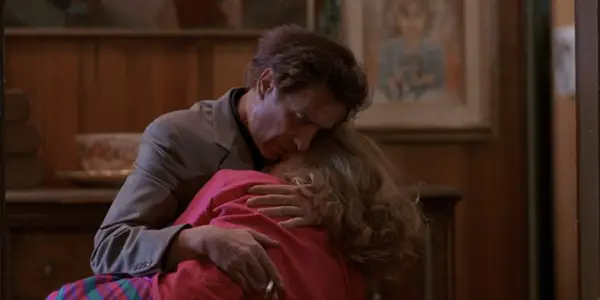
Though not his actual final feature, (that honour belongs to Big Trouble, another ill-advised studio venture), Love Streams is the final Cassavetes film that feels like a Cassavetes film. He takes the lead role of Robert Harmon, a kindhearted but dipsomaniacal writer, who’s incapable of taking care of his young son. Gena Rowlands plays his sister, Sarah, who comes to stay with him whilst she suffers a nervous breakdown.
A real life married couple playing brother and sister doesn’t happen very often in cinema, though it’s a strangely frequent occurrence in Cassavetes‘ films, also taking place in Shadows. The real life relationship between Cassavetes and Rowlands adds to the film’s already considerable emotional heft; the fact that the bulk is shot in their real-life home makes it all the more personal.
It’s a poignant finale to his career. At the time of shooting, Cassavetes was very sick, and watching Love Streams, it’s hard not to feel that he knew this would be his final film. His whole view of humanity, demonstrated over thirty years of filmmaking, can be summed up in two lines of dialogue spoken by the siblings. Sarah, railing against the loss of her family exclaims, ‘Love is a stream, it’s continuous, it doesn’t stop’. Robert says ‘You see, everyone in the world is very screwed up’.
The men in Cassavetes’ films are drunken lotharios, the women perennially on the verge of a nervous breakdown. They are prickly, damaged, frustrating characters, yet he always treats them with kindness and understanding and love. His films implore empathy, which is the main reason they are so affecting.
Legacy
John Cassavetes’ legacy is enormous. On a minor level, two of his three children, Zoe and Nick, became filmmakers. In addition, the Independent Spirit Awards named one of their prizes for him; in the past two decades, winners and nominees have included Tom McCarthy, Lynne Shelton, Jeff Nichols, Jeremy Saulnier, Andrew Bujalski and Ava DuVernay.
But his legacy extends further still. When Cassavetes released Shadows, everything about it was so new – from the unconventional financing to the improvisatory nature of the acting to the cinema verite aesthetics – that audiences didn’t know how to react.
Half a century later, and American independent film is thriving. Indie films are landing big distribution deals and winning Oscars and other prestigious awards with a regularity that would have seemed astonishing in 1959.
Although Cassavetes was not the only pioneer of the independent film movement, his hard-fought successes made it easier for the directors that came after, which has in turn improved the variety of cinema that we all get to experience. Filmmakers and film-lovers alike owe him a huge debt.
Which other directors have been vital to the development of American Independent Cinema?
Note: I’ve quoted here from Ray Carney’s seminal book Cassavetes on Cassavetes (Faber and Faber, 2001), which I’d heartily recommend if you want to learn more about the director and his life.
Does content like this matter to you?
Become a Member and support film journalism. Unlock access to all of Film Inquiry`s great articles. Join a community of like-minded readers who are passionate about cinema - get access to our private members Network, give back to independent filmmakers, and more.
It took me a while to discover the wonderful world of cinema, but once I did, everything just fell into place.












